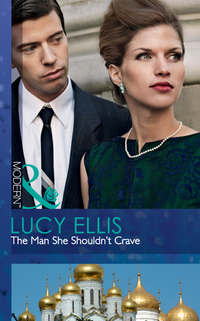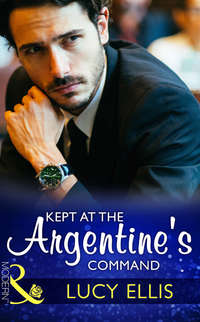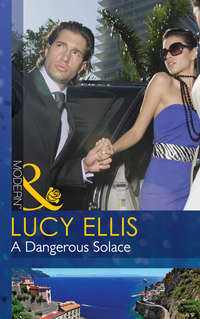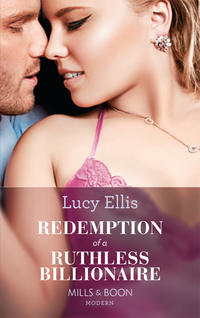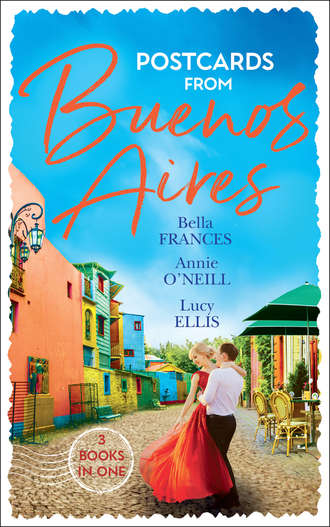
Полная версия
Postcards From Buenos Aires: The Playboy of Argentina / Kept at the Argentine's Command / One Night, Twin Consequences
Again.
She had to get smarter. Had to keep herself buoyant. More than anything else she had to make sure the black mood didn’t come back.
She’d stuffed her watch and earrings inside her case with her other belongings, rolled it to the door and swatted him away when he’d attempted to lift it. She could look after herself. And then some.
Then the two-hour car journey. The icy silence punctuated by more intense conversations on his phone. Frankie had drifted in and out, picking up snippets about equine genetics and shale gas fields, decisions about publicity opportunities he wanted reversed. Now.
She had rummaged in her bag, pulled out a nail file. She’d filed her nails into perfect blunt arcs. The scenery had been flat—green or brown—and the company had been intently and exclusively business. Her phone was still dead and her guilt about not speaking to Esme properly still rankled.
The car had rolled on. She had gazed out of the window, anger and upset still bubbling in her blood. Then she had felt her hand being lifted. She’d looked round sharply. He had smoothed her fingers, squeezed them in his own—the gnarled knuckles and disfigured thumb starkly brown against her paper-pale skin. Still he hadn’t looked at her, but he’d lifted them, pressed his lips to them, and she had known then that that was as much of an apology as she was likely to get.
Damn him. Fire and heat. Ice and iron. She shouldn’t allow him to win her over as easily as that, but there was something utterly magnetic about this man. She needed to play much more defensively—protect herself as much as she could. Because every time she thought she’d figured this—them—out he shifted the goal posts again.
She could have been on a helicopter to Punta right now. He had offered to send her. Not to take her, of course—there was the subtle difference. And she had declined. She’d still have plenty of time to catch up with Esme when she got there. Her buying trip to the Pampas was not for days yet. She would make it to Punta tomorrow, the party was tomorrow night—it would be no time at all until this thing burned out between them. No time until she was off doing her own thing again.
If she kept her head it should all work out fine.
There had been more calls, more decisions. She’d sat wrapped in her own thoughts, no room for soft squeezes or stolen kisses. Had closed her eyes and drifted off to sleep, finally opening them as they’d arrived at this heart-stopping ranch.
‘It’s fine,’ she said now, stepping out of the car, and feeling every one of her senses come alive with this place. ‘You go and find Juanchi and I’ll have a wander.’
For the first time since Dante had left Rocco seemed to look at her properly. He finally tucked his phone away in the pocket of his jeans, flipped his hair back from his eyes and scowled.
‘Problem?’ she said, with as bored an expression as she could muster. Diplomacy wasn’t her biggest skill, and she knew if she really spoke her mind it might not be the best move. Not yet anyway.
‘I’ve been neglecting you.’ He looked at her over the roof of the car. ‘So much to deal with—my apologies.’
Frankie shrugged. ‘You’re a busy guy,’ she said. ‘I really don’t want to be in the way.’
He was looking around, as if Juanchi was going to spring out from behind a bush. He looked back. Looked totally distracted.
‘I’ll catch you up,’ she said, walking off, waving her hand.
‘Where are you going to go?’
‘I’m a big girl,’ she called over her shoulder, ‘I’m sure I’ll find something to occupy myself.’
‘Wait by the pool. Round the back. I won’t be too long.’
She answered that with another wave and kept walking.
CHAPTER SEVEN
FRANKIE STEPPED TOWARDS the house. Up close it was imposing, presidential. The drive swept before it in a deferential arc. Pillars loomed up, supporting the domed roof of the entrance and the terrace that wrapped itself like a luxury belt all around it.
She could imagine Rocco roaring up in a sports car, braking hard and jumping out, striding up to the doors, owning the whole scene. In fact, she didn’t need to imagine it—she’d seen it all before, in that television report of Rocco. This was where he had been photographed with one of his blondes. Carmel Somebody … the one who’d been reported to be ‘very close’ to him.
She walked towards the door, noted the long, low steps, the waxed furniture and exotic climbers. Frankie stopped. She didn’t particularly want to go wandering about in his house—she didn’t particularly want to get wrapped up in any more of his life. Not when she was only passing through. Was it really going to help her to have another page in her Hurricane scrapbook? She already had a million different mental images of Rocco: making love, showering, sipping coffee at the breakfast table. She had hoarded more than enough to keep her going for another ten years. What she really needed to do was start erasing them—one by one. Otherwise …? Otherwise history was going to repeat itself.
Rocco wasn’t looking for a life partner. He was looking for a bed partner and some arm candy. And so was she.
She turned on her heel. She’d go to the stables. She’d feel much more at home there.
It was strange how unlike her expectations this part of the estancia was. She’d grown up with so many stories of heartless South American animal husbandry. Horses whipped and starved and punished. But Mark had been vehement in his defence of Rocco. He had confirmed the rumours that had rolled through their own stables—of the Hurricane in the early days, sleeping with his horses rather than in his own home, spending more time and money on them than he did anything else. He’d been notoriously close to his animals, and notoriously distant with people.
It didn’t look as if much had changed.
She picked her way along the side of the house, past the high-maintenance gardens and round to the even more highly maintained stables.
They were immaculate. Nothing out of place. All around grooms—some young, some old, Argentines and Europeans, men and girls—seemed lazily purposeful. Here and there horses were being walked back and forth to the ring, or beret-capped gauchos were arriving back from the fields with five or six ponies in lightly held reins. No one seemed to notice that she was there, or if they did they left her well alone.
Rocco was nowhere to be seen.
She walked past high fences, their white-painted wood starkly perfect against the spread of grass behind. The sun’s heat was losing its hold on the day, but some horses and dogs still sought shade under the bushes and trees that lined various edges of the fields.
Rounding the corner of a low stable block, she saw him. Off in the distance, deep in conversation with an old, bent man. Juanchi, she supposed.
Even from here he was striking, breathtaking. His stride was so intense, yet it held the effortless grace of a sportsman. Every part of him was in harmony, undercut with power. Everything he did with his body was an art. Kissing, dancing, riding, making love. Being so close to him for these few hours she had learned his ways, his unashamed confidence, control and drive. He was everything she had spent the past ten years expecting him to be. Everything her broken teenage heart had built him up to be. More was the pity.
She stood back, watched, willed herself not to care. So he was Rocco Hermida? She was Frankie Ryan. He didn’t have the monopoly on everything. She could kiss, she could ride and, now that she’d spent the past fourteen hours with him, she could claim to be quite an accomplished lover, too.
She supposed …
She didn’t have much to compare him to—a few disappointing fumbles at university parties, a dreary relationship with a co-worker when she had first arrived in Madrid. But that was because she hadn’t known her own body back then. It wasn’t because Rocco and only Rocco could light her up with a single touch. Other men could do that—she just hadn’t learned to let go yet. Now she would. She was sure.
But even watching him standing on the threshold of his immaculately appointed barn, a structure more at home in a plaza than a field, she couldn’t deny he was captivating. He listened to the old man, gave him his full attention, nodded, then pulled the bolt closed on the barn and moved off with him. She watched them walk back out from the shadows cast by the building’s sides into bright sunlight.
Respect. That was what he was showing. He respected this old man.
That intrigued her. Of all the qualities she’d seen in him—leadership, confidence, passion, determination, even brotherly affection to Dante—respect hadn’t been visible. It showed something about him now, though. It showed that he was even deeper and harder to read than she’d thought.
They turned another corner and vanished from view. Her eye was drawn back to the barn.
Wouldn’t it be fabulous if one of Ipanema’s ponies was inside? No high-powered polo match to recuperate from, just waiting for a little handful of polo nuts and a hug. Wouldn’t it feel fabulous to sit on one of Ipanema’s ponies? Wouldn’t that be worth a phone call back home?
She started across the yard, but the low groan of a helicopter coming in to land made her look to her left. And there, off in the distance, she saw them. All shiny chestnut coats and forelock-to-muzzle white stars. Her face burst into a smile that she could feel reach her ears—she would know them anywhere. Like a homing device, she made her way forward.
They were playing in the field with four other classic caramel Argentinian ponies. For a moment she wondered what it would be like to be able to see them, be with them every day. Hadn’t that been her dream job once? What had happened to that girl? So desperate to get away from the choking darkness of depression and the oppressive judgement of her father, she’d moved away from everything else she held dear, too. She barely had any time with her mother or her brother Mark. She was in regular contact with Danny, thousands of miles away in Dubai, but that was probably because they’d recognised in each other the same desperate need to escape.
Two of the ponies noticed her leaning on the fence and began to trot over. She looked about. Maybe the grooms and gauchos were all crowded together inside somewhere, drinking maté, because the whole place seemed to have become deserted.
Would it be too awful to help herself to a saddle? To tack up one of the ponies? To climb on its back and trot a little? What would be the harm in that? It wasn’t as if Rocco would even know. It wasn’t as if he particularly cared what she was doing. Then or now.
He’d never made the slightest effort to find out anything about her after that night. It was all very easy to say now that he felt terrible, but really—how much effort would it have taken to ask after her while he was negotiating the sale of Ipanema? She’d never blamed him for her getting sent to the convent—she held herself personally responsible for that … had made herself personally responsible for everything! And maybe it was that—the tendency to be so hard on herself—that had made her slide so quickly into depression.
Well, not anymore. She would never go back there.
She spotted the tack room and sneaked inside.
Five minutes later she was up and over the wide, white-slatted fence. Five minutes after that she was hoisting herself lightly onto a pony. In a heartbeat she had covered the entire length of the field—just in a walk, then a trot. Then, with a look around her, to make sure there was still nobody caring, she tapped her heels into the sides of the adorable little pony and cantered to the farthest side.
In the distance she could see seas of green and yellow grass. Brown paths cut through them here and there, and running east to west the blue trail of a stream. Gunmetal clouds had rolled across the sky. And that was it. She was alone, she was as free as a bird and she was loving every last moment.
The pony was a dream—the lightest squeeze with her thighs and it picked up speed, the lightest tug with the reins and it turned or stopped. Most of their horses before Ipanema had been show jumpers rather than polo ponies. Ipanema’s grandmother had been a champion show jumper, her mother had carried royalty at Olympia and then Ipanema herself had been spotted as a potential polo pony. When her father had taken her to County Meath she had just won best playing pony at the Gold Cup at Cowdray.
Frankie had been put on horses since she could walk. At age four she’d been able to balance on one leg on the sleepiest pony as it circled the yard—until she’d got yelled at to get down. At age ten Danny had dared her to try fences as high as the ones she had seen at the show trials. Of course she had fallen, tried to hide her broken arm for fear of her father’s wrath and then been taken by her long-suffering mother to get it put in plaster. Yes, she’d pushed every boundary growing up—and she was going to push another one now.
Nobody was around. She walked the little pony out of one field and into another. A long clear path lay ahead. She squeezed lightly and started to gallop. On through the pampas, with the seas of green on either side of her as high as the pony’s withers. Dust blew up around her, clouding her path, but she trusted the pony and gave her her head.
It all came back—those daily rides with Ipanema, and before her all her other favourites from the yard.
Feeling the warm air whip past her cheeks, the excited thump of her heart and the sensation that she was leaving all her worries behind her, she realised that there was no release like this. No wonder the first thing she’d done after school was to race home, tear off her school uniform and fly to the stables. She’d never known how badly she missed it until now.
The countryside didn’t change—just more and more of the same. At one point she was alongside the stream, but then five minutes later it was nowhere to be seen. The huge grey clouds had rolled closer and were underlit with gold from the sinking sun. Sunsets seemed to arrive so much faster here than in Ireland. She’d check the time, but her watch was still stuffed in her case with her earrings … and her hurt at his actions over that photograph.
Who could it have been? Who could have caused such a shut-down? She let the images flit through her mind: the cherubic cheeks, the shock of blond hair. Apart from the scowling mouth there wasn’t much of a family resemblance … but then there was no family resemblance between her and Mark. More between her and Danny …
Anyway, she was thousands of miles away from any of them, and every strike of the pony’s hooves was taking her farther away from Rocco, too. She needed the space. This was definitely a much better option than hanging around by the pool, waiting for his godlike presence, for him to condescend to speak to her. She needed to get her world back into perspective. She needed to make sure her defences were completely and utterly intact.
She slowed down, picked up the stream again, nosed the pony forward to have a drink. Smoothing her hand down the pony’s soft, strong neck, she made a mental note to check out some stables in Madrid. Maybe she should go even further than that. Maybe she should re-evaluate her whole life plan. Did she really want to work her way through the ranks of Evaña? Or did she want to go back to her first love: horses? How could she break back into that world? Move back to Ireland? Go work for Mark?
A noise sounded above her, off in the distance. The pony’s ears pricked up.
No, she didn’t want to keep running. But she didn’t want to go back, either. She had put so much into her career already, and had so much more to prove. To the company and to herself. She knew she’d chosen a deliberately hard path, but the payback from every small success was worth a thousand times more than any easy life back in Ireland. Only a few more days and she would get her next big break—or not. It was all to play for—and she was damned sure she was going to give it her all.
She tugged the reins ever so slightly. Time to get going again. Another gallop around and then she’d head back. She was pretty sure she could find her way. If those thunderous-looking clouds hadn’t rolled in so quickly she’d have a glimpse of the sun to give her her bearings.
The pony picked up her heels and they started to canter. The noise above her continued to grow. She twisted her head—a helicopter. They were so common here. Like a four-door saloon, everyone seemed to have one. It seemed to circle above her, and then flew away.
She was thirsty—should have taken a drink at the stream herself. She looked around, trying to see where it was. It should be on her right, and if she could find it she could follow its path most of the way back.
A slight sense of unease gripped her. Grasses swayed in the breeze in every direction. The wind was picking up. More low clouds swollen with summer rain had now rolled right overhead, darkening the day and filling the air with warning. There was not a landmark to gift her any sense of where she was or where she should go.
The pony seemed quite content to trot on, but she was beginning to worry that it would trot on forever. Her legs were beginning to chafe on the saddle and a huge wave of tiredness washed over her.
Suddenly, as fat raindrops landed on her legs, her bare arms and then all about her, she thought she saw movement off to her left. She turned the pony round, sure she knew now which way to go.
The rain exploded in sheets of grey. She could barely see a foot in front of her. Her lashes dripped; rain ran down her face. She slid in the saddle and dipped her chin down to try and deflect what she could. She looked around, trying to make sense of her surroundings, but couldn’t see anything except wave after wave of summer storm.
She tried to look for shelter—anything, even a tree—but there was nothing except the oceans of grass and rain. Rain didn’t fall like this in Ireland. This was vicious, relentless, unforgiving.
Suddenly the pony was frisky. Movement again—and a figure appeared, riding right at her. She pressed her thighs, willed the pony on, but the pony was too excited. And in a heartbeat Frankie realised why.
‘What the hell are you doing?’
Rocco. Like a freight train through the night he rode right at her. She tried to move away, but he pulled on his reins and spun to a stop at her side. The wildness, the rage on his face stole her breath. She pushed her soaked hair out of her eyes and bit back the shock and the swollen lump in her throat.
‘What does it look like I’m doing?’
He jumped down and grabbed her reins.
‘Get down.’
‘Don’t speak to me like that!’ she yelled back. ‘You’re not my damn father.’
The rain was still lashing in sheets around them. She could barely see the planes of his tanned face but his eyes flashed fire through the silvery air.
‘For the first time I realise what it must have been like to be your damn father!’
He circled her waist with his arm and heaved her off the horse. Landing against his side, she shoved him away.
‘Get your hands off me. Stop treating me like a child.’
Her throat was sore from swallowed emotion, but she would not give him a hint of it.
He moved to reach for her, but then stopped. His hands were clenched into fists at his sides, his jaw was rigid, his mouth a grim slash. But his voice when he spoke was quietly, menacingly calm.
‘You caused me to send out a helicopter when a storm was coming in. You caused panic at the estancia. You stole a horse and—’
‘I did not steal—’
He held his hand up to silence her and she was so taken aback she stopped.
‘You stole—’ he emphasised the word again ‘—a twenty-thousand-dollar horse. A horse that is part of our genetics programme. Without a thought about anyone but yourself you took off into the country. And that’s not behaving like a child?’
She heard his words, saw his fury and felt such a wave of shame.
‘I didn’t mean any harm.’
He stared at her.
‘Look at you.’ He reached across, roughly cupped the back of her soaked head, wiped his thumb hard across her cheek. ‘Soaked to the skin … Lost …’
She dug her teeth into her lip. She would not cry. Would not.
‘I wasn’t lost. If the storm hadn’t come in I would have been fine.’
She could feel the ache between her legs from hours in the saddle, her skin was beginning to chill, and despite herself her teeth began to chatter.
He regarded her with such contempt—as if she was the most infuriating thing he’d ever had to deal with. Then he reached back to his own saddle to a blanket that lay beneath. He yanked it free and held it out.
‘Here. You need to get rid of those clothes—for what they’re worth.’
She looked at him.
‘What? And then you’ll wrap me up and make me ride home side-saddle in a blanket? This isn’t some damned John Wayne film! I’m not your weak little woman!’
She grabbed the reins out of his hands and tried to climb back on the horse. Immediately she felt his arms around her, spinning her to face him.
‘Weak little woman? You’re as far from that as it’s possible to be. God knows, you might want to try it some time.’
He stared down at her, his fingers gripping her shoulders. She looked into those eyes, at that mouth. She felt the tug of desire and desperately, desperately wished that she didn’t. She knew that she wanted to slide her arms around his strong neck, wrap herself up in his hard, warm body. How could this physical draw be so strong? So irresistible? But she wouldn’t give in—no way, not this time.
She turned her cheek. He tugged at her chin.
‘Look at me,’ he ordered.
She tensed, but slid her eyes back.
‘Look at you? Now? Because it suits you?’ She shoved at him. ‘But from the moment I woke up at your town house, and then in the car, the last thing you wanted me to do was look at you. Or at your damned photo!’
‘I was busy. I have to take care of so many things,’ he growled out.
‘You’re not the only one with a life. With a past.’
He looked away, as if expecting the horses to agree that this was the most exasperating nonsense he’d ever had to endure.
‘Frankie—I don’t do this with women. I don’t explain myself … I don’t fight.’
‘No? Well, maybe that’s the problem. Maybe you should try explaining yourself once in a while!’
She knew she sounded shrewish and shrill. She knew her voice was wobbling with unspilled tears. She knew if she stood another second in his company she would submit to whatever he wanted—just so she could feel that soothing sense of completeness he gave her.
But where would that leave her?
‘I’ll follow you back to the ranch,’ she said to the wind. ‘And then I’ll make my own way to Punta. Okay? Then you’ll not need to look at me, or fight with me, or damn well come and “rescue” me.’
She tried to stuff her wet tennis shoe into the stirrup, tried to hoist herself up. Once, twice, three times she tried, but exhaustion wound through her, heavy and dark as treacle. She laid her arms on the saddle and hung her head, dug deep and tried again.
Then Rocco’s arms. Rocco’s shoulder.
He pulled her back, and she used the last of her energy to spread her fingers against him and push.
‘Frankie, querida, stop fighting me.’
He scooped her against his body, his shirt wet but warm. He walked her three paces, holding her close, whispering and soothing. She had nothing left to battle him with, and as he pinned her arms at her side in his embrace she let all her fight go like a dying breath.
‘I can’t let you go back like this.’ He clutched her in one arm and flicked out the blanket with the other. ‘I can’t stand watching you fighting against me so hard when there’s no reason.’


